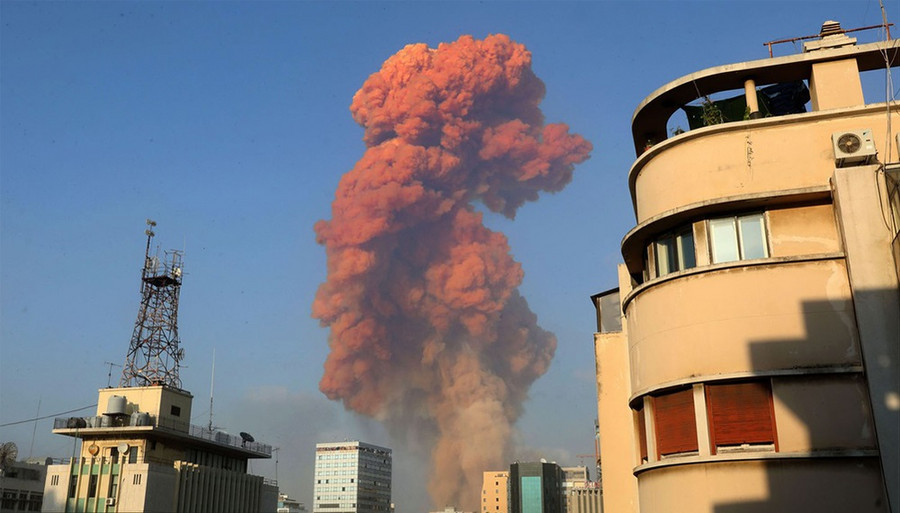On Tuesday evening, 04 August 2020, a massive explosion rocked Beirut. The explosion occurred at 18:07 local time at the port of Beirut, in the vicinity of many very populated areas and tourist sites. It is estimated that the explosion caused at least 100 deaths and at least 4 000 injuries. Many people are still trapped under the debris. According to information given to the media by the Lebanese authorities, the explosion was caused by ammonium nitrate, which, at 2 750 tonnes, has been stored in the port for 6 years.
ICCSS experts’ commentary:
Ammonium nitrate is an odourless, crystalline substance commonly used as a fertilizer. In Europe, the production and trade of pure ammonium nitrate (100% ammonium nitrate) is forbidden. For agricultural purposes, chemically inert calcium oxide is added to the nitrate, which dilutes the nitrate and eliminates the danger of explosion. At this point in time, it is difficult to say clearly what led to the explosion in Lebanon. According to available information, the nitrate was confiscated 6 years ago, and was stored in the port. The self-ignition of the nitrate is not very probable due to the conditions that must be met, but not excluded. Ammonium nitrate is potentially explosive, but there must be a strong trigger that causes an initial shock wave, which in turn will result in ammonium nitrate burst. Anders Breivik carried out an attack in Oslo using pure ammonium nitrate, and in Oklahoma the ammonium nitrate was mixed with diesel fuel using a TNT catalyst.
Storing the nitrate for 6 years could increase its instability. It increased the likelihood of an explosion either as an intentional act or as an accident.
In the media footage, it can be seen that before the explosion there was a local fire in the port and clouds of white dense smoke were floating, only after a while sparks become visible, which as a result of the explosion turn into a brown-orange cloud of smoke. It can be assumed that it was this explosion that caused the shock wave, which can be clearly seen on the recording as a growing white ball - it was probably the catalyst of the ammonium nitrate explosion. At the moment, there is too little data to establish credibly the chain of events that led to the explosion, and to conclude whether this happened by accident or by deliberate action.
The ammonium nitrate itself is not a toxic hazard, but it must be taken into account that the explosion occurred in a port where other chemicals could have been stored that could have been spread and contaminate the area by the shock wave. The explosion occurred in an environment of unknown composition, so it is difficult to be certain of the chemical contamination.
There is certainly a gross negligence regarding chemical safety by allowing the storage of nitrate for 6 years without the likely provision of appropriate storage conditions.
In the opinion of amb. Krzysztof Paturej, President of the International Center for Chemical Safety (ICCSS), seaports and airports are particularly exposed to the accidental or intentional explosion of theft of transported or stored chemicals or energy carriers. Rapidly increasing shipping of chemicals by sea or air does not match with the development of relevant technical infrastructure. There are often no relevant chemical safety regulations and rules in place. Port authorities often have little knowledge of the risks associated with the storage of chemicals or energy carriers. Many of them, including acetone, have been used for terrorist purposes. Others have tremendous destructive power, like ammonium nitrate. It is necessary to implement chemical safety rules and practices in the transport, storage and use of toxic substances. Otherwise we witness more catastrophic man-made or natural chemical disasters. ICCSS is a pioneer in reducing chemical threats and development and implementation of chemical and biological safety management in all chemical chain of activities as important factors in local, national and international security.

